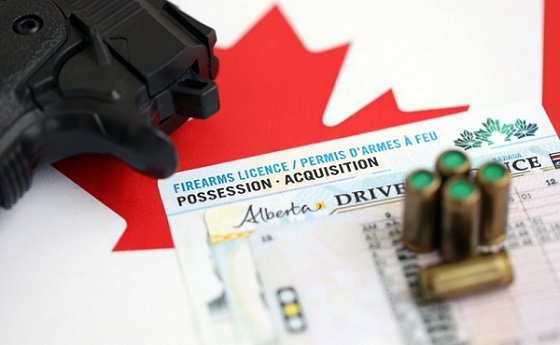Business
Ottawa’s proposed ‘food packaging’ ban will harm Canadians without helping the environment

From the Fraser Institute
The Trudeau government, which recently banned plastic bags nationwide, is now considering a ban on plastic “food packaging” in support of its ambitious “Zero Plastic Waste by 2030” goal. However, if the government bans plastic food packaging, it will impose real economic costs on Canadians and jeopardize their health, for virtually no discernible environmental benefit.
First, let’s put plastic pollution in perspective. Canada contributes an estimated 0.4 per cent of all plastic waste in the world, including just 0.02 per cent of all plastic waste in the world’s oceans. Five countries—China, the United States, Germany, Brazil and Japan—generate nearly 50 per cent of global plastic waste. And 90 per cent of the world’s ocean plastic waste comes from Asia and Africa. Even if the government achieved “Zero Plastic Waste by 2030,” the effect on global plastic waste would be undetectable.
Before these bans, Canada’s track record on managing plastic waste was outstanding, ranking 49th out of 158 countries for minimizing mismanaged plastic waste (measured on a per-person basis). The federal government acknowledges this fact in its own report where it also states that 99 per cent of the country’s plastic waste is already disposed off safely through recycling, incinerating and environmentally-friendly landfills.
And plastic bans pose real risks to human health and the environment. For example, according to a recent study in the Journal of Food Additives and Contaminants, like plastic straws, straws made from plant-based materials such as paper, wood and glass (common substitutes for plastic straws) also contain a class of chemicals known as per- and polyfluoroalkyl substances (PFAS), which can persist for thousands of years and migrate through the soil, potentially contaminating sources of drinking water. This contamination exposes both wildlife and humans to potential negative effects on the immune system, thyroid function, liver and other adverse effects that are yet to be fully understood.
In other words, we don’t fully know how plastic alternatives will affect our health and the environment.
There are other costs. For example, plastic wrapping, which could soon be banned, is instrumental in food preservation, food transit and the reduction of food waste by protecting against contamination and spoilage throughout the food supply chain. And any type of plastic packaging can increase the time food lasts from days to weeks, allowing families to cut their grocery spending. In addition, plastic is the most cost-effective among common packaging materials, so forcing the food industry to transition to pricier alternatives will raise the cost of food packaging and these added expenses will be passed on to consumers through higher food prices.
To make matters worse, eliminating plastic food packaging could also negatively impact the environment from an emission standpoint. Why? Because food production emits greenhouse gases (GHG) and the process of replacing spoiled food requires additional production, transportation and refrigeration, resulting in higher overall emissions.
Plastic substitutes such as paper are also heavier, require more energy to transport, present higher smog formation and ozone depletion potential, demand more water and energy to be produced, and ultimately result in higher greenhouse gas emissions. Researchers in Switzerland found that opting for plastic packaging for baby food, instead of glass, could reduce emissions by up to 33 per cent, mainly due to reduced weight when being transported. So, the ban on plastics can have a detrimental, rather than a beneficial impact on the environment.
Overall, the pursuit of a “zero plastic” waste goal by banning more plastic products will jeopardize the health of Canadians, negatively impact the environment, and burden the already strained finances of Canadians.
Authors:
Business
Storm clouds of uncertainty as BC courts deal another blow to industry and investment

From the Fraser Institute
By Tegan Hill and Jason Clemens
Recent court decision adds to growing uncertainty in B.C.
A recent decision by the B.C. Court of Appeal further clouds private property rights and undermines investment in the province. Specifically, the court determined British Columbia’s mineral claims system did not follow the province’s Declaration on the Rights of Indigenous Peoples Act (DRIPA), which incorporated the United Nations Declaration on the Rights of Indigenous Peoples (UNDRIP) into law.
DRIPA (2019) requires the B.C. provincial government to “take all measures necessary to ensure the laws of British Columbia are consistent with the Declaration,” meaning that all legislation in B.C. must conform to the principles outlined in the UNDRIP, which states that “Indigenous peoples have the right to the lands, territories and resources which they have traditionally owned, occupied or otherwise used or acquired.” The court’s ruling that the provincial government is not abiding by its own legislation (DRIPA) is the latest hit for the province in terms of ongoing uncertainty regarding property rights across the province, which will impose massive economic costs on all British Columbians until it’s resolved.
Consider the Cowichan First Nations legal case. The B.C. Supreme Court recently granted Aboriginal title to over 800 acres of land in Richmond valued at $2.5 billion, and where such aboriginal title is determined to exist, the court ruled that it is “prior and senior right” to other property interests. Put simply, the case puts private property at risk in BC.
The Eby government is appealing the case, yet it’s simultaneously negotiating bilateral agreements that similarly give First Nations priority rights over land swaths in B.C.
Consider Haida Gwaii, an archipelago on Canada’s west coast where around 5,000 people live—half of which are non-Haida. In April 2024, the Eby government granted Haida Aboriginal title over the land as part of a bilateral agreement. And while the agreement says private property must be honoured, private property rights are incompatible with communal Aboriginal title and it’s unclear how this conflict will be resolved.
Moreover, the Eby government attempted to pass legislation that effectively gives First Nations veto power over public land use in B.C. in 2024. While the legislation was rescinded after significant public backlash, the Eby’s government’s continued bilateral negotiations and proposed changes to other laws indicate it’s supportive of the general move towards Aboriginal title over significant parts of the province.
UNDRIP was adopted by the United Nations in 2007 and the B.C. Legislature adopted DRIPA in 2019. DRIPA requires that the government must secure “free, prior and informed consent” before approving projects on claimed land. Premier Eby is directly tied to DRIPA since he was the attorney general and actually drafted the interpretation memo.
The recent case centres around mineral exploration. Two First Nations groups—the Gitxaala Nation and the Ehattesaht First Nation—claimed the duty to consult was not adequately met and that granting mineral claims in their land “harms their cultural, spiritual, economic, and governance rights over their traditional territories,” which is inconsistent with DRIPA.
According to a 2024 survey of mining executives, more uncertainty is the last thing B.C. needs. Indeed, 76 per cent of respondents for B.C. said uncertainty around protected land and disputed land claims deters investment compared to only 29 per cent and 44 per cent (respectively) for Saskatchewan.
This series of developments have and will continue to fuel uncertainty in B.C. Who would move to or invest in B.C. when their private property, business, and investment is potentially at risk?
It’s no wonder British Columbians are leaving the province in droves. According to the B.C. Business Council, nearly 70,000 residents left B.C. for other parts of Canada last year. Similarly, business investment (inflation-adjusted) fell by nearly 5 per cent last year, exports and housing starts were down, and living standards in the province (as measured by per-person GDP) contracted in both 2023 and 2024.
B.C.’s recent developments will only worsen uncertainty in the province, deterring investment and leading to stagnant or even declining living standards for British Columbians. The Eby government should do its part to reaffirm private property rights, rather than continue fuelling uncertainty.
Business
Conservative MP warns Liberals’ national AI plan could increase gov’t surveillance

From LifeSiteNews
Conservative MP Leslyn Lewis raised concerns about the Liberals’ major investment in AI, which could lead to digital ids and loss of freedoms.
Conservative MP Leslyn Lewis is sounding the alarm over the Liberals’ nearly billion-dollar AI infrastructure investment, which could lead to digital IDs
In a December 2 post on X, Lewis raised concerns over the Liberals’ 2025 budget, which funds a $925.6 million “Sovereign Canadian Cloud” and national AI compute infrastructure at the same time as the Liberals are pushing digital identification on Canadians.
“Who audits the algorithms behind government’s new digital systems?” Lewis challenged. “What protections exist for Canadians in this new infrastructure? Who builds it? Who controls it? Who owns the data?”
“Good technology isn’t the issue, our freedoms, surveillance and good accountable governance in a digital era are the real issues,” she warned.
“Digital infrastructure is power, and it must never be implemented in secrecy or without parliamentary scrutiny,” Lewis declared.
Despite spending nearly one billion taxpayer dollars on the project, Prime Minister Mark Carney provides surprisingly few details on how the infrastructure will work and what its purpose will be.
“Budget 2025 proposes to provide $925.6 million over five years, starting in 2025-26, to support a large-scale sovereign public AI infrastructure that will boost AI compute availability and support access to sovereign AI compute capacity for public and private research,” the budget read.
“The investment will ensure Canada has the capacity needed to be globally competitive in a secure and sovereign environment,” it continued.
Alarmingly, the funding comes at the same time as Liberals are moving forward with digital identification systems, despite warnings that they will infringe on Canadians freedoms.
In November, as reported by LifeSiteNews, Liberals moved ahead with digital identification for anyone seeking federal benefits, including seniors on Old Age Security.
Additionally, the Canadian government hired outside consultants tasked with looking into whether or not officials should proceed with creating a digital ID system for all citizens and residents.
Per a May 20 Digital Credentials Issue memo, and as noted by Blacklock’s Reporter, the “adoption” of such a digital ID system may be difficult.
Canada’s Privy Council research from 2023 noted that there is strong public resistance to the use of digital IDs to access government services.
Nonetheless, Conservative leader Pierre Poilievre sounded the alarm by promising to introduce a bill that would “expressly prohibit” digital IDs in Canada.
Critics have warned that the purpose of such IDs is actually to centralize control over citizens. This opinion seems to be mirrored by the general public, with a Bank of Canada survey finding that Canadians are wary of a government-backed digital currency, concluding that a “significant number” of citizens would resist the implementation of such a system.
Digital IDs and similar systems have long been pushed by globalist groups like the World Economic Forum, an organization with which Carney has extensive ties, under the guise of ease of access and security.
-

 espionage2 days ago
espionage2 days agoWestern Campuses Help Build China’s Digital Dragnet With U.S. Tax Funds, Study Warns
-

 Bruce Dowbiggin2 days ago
Bruce Dowbiggin2 days agoWayne Gretzky’s Terrible, Awful Week.. And Soccer/ Football.
-

 Business1 day ago
Business1 day agoCanada invests $34 million in Chinese drones now considered to be ‘high security risks’
-

 Health2 days ago
Health2 days agoCDC Vaccine Panel Votes to End Universal Hep B Vaccine for Newborns
-

 Business2 days ago
Business2 days agoThe EU Insists Its X Fine Isn’t About Censorship. Here’s Why It Is.
-

 Agriculture2 days ago
Agriculture2 days agoCanada’s air quality among the best in the world
-

 Great Reset1 day ago
Great Reset1 day agoSurgery Denied. Death Approved.
-

 Business1 day ago
Business1 day agoThe Climate-Risk Industrial Complex and the Manufactured Insurance Crisis













